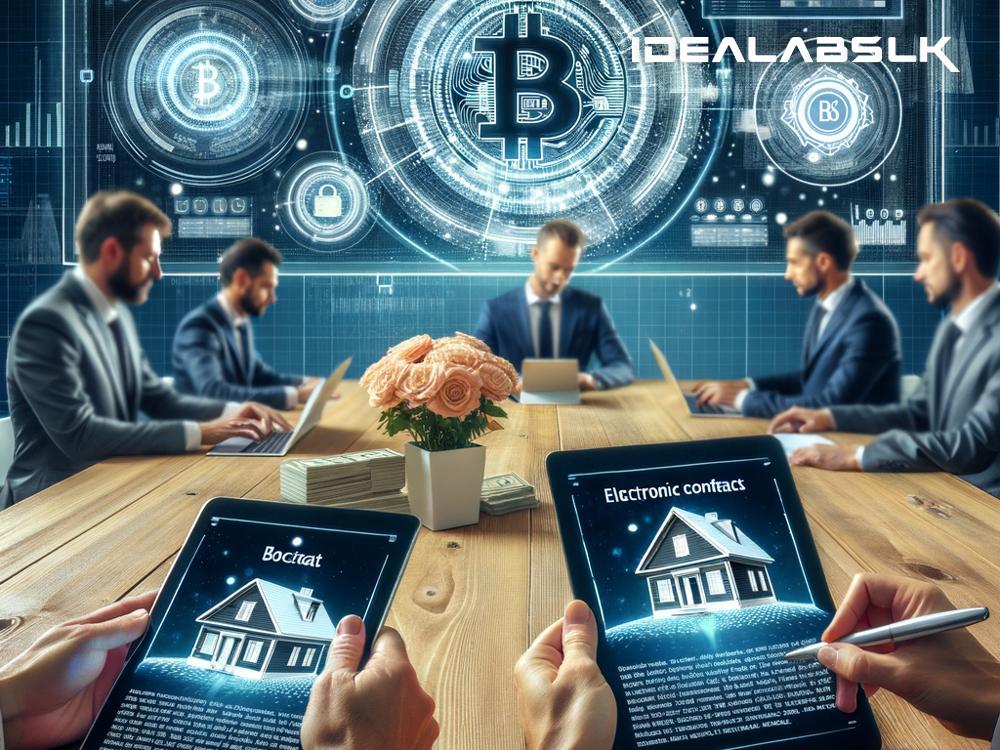Title: How Blockchain Technology is Revolutionizing Real Estate Transactions
Introduction
The real estate industry, known for its age-old practices and paper-heavy processes, is on the verge of a major transformation. Blockchain technology, a term often associated with cryptocurrencies like Bitcoin, is making its way into the real estate sector, promising to make buying and selling property faster, more secure, and less cumbersome. In this article, we’ll explore the fascinating world of blockchain technology and its potential to revolutionize real estate closing processes.
Understanding Blockchain Technology
At its core, a blockchain is a digital ledger that securely records transactions across multiple computers in such a way that the recorded transactions cannot be altered retroactively. This technology fosters transparency, security, and trust without the need for a central authority or intermediary, such as a bank or government.
The Traditional Real Estate Closing Process
Typically, closing a real estate transaction is a long and tedious process that involves a lot of paperwork, various intermediaries (like escrow companies), legal checks, and potential for errors and fraud. Buyers, sellers, and their agents must navigate through numerous steps, which can take anywhere from several weeks to a few months to complete.
The Role of Blockchain in Real Estate Closings
Imagine a world where buying or selling a property could be as simple and quick as transferring money online. That’s the potential of blockchain technology in the real estate closing process. Here’s how it could change the game:
-
Smart Contracts: These are self-executing contracts with the agreement terms directly written into code. In real estate, smart contracts could automate various steps of the closing process, such as transferring property titles and releasing funds, without human intervention. This not only speeds up transactions but also minimizes the risk of fraud and errors.
-
Transparent Transactions: Blockchain’s transparent nature allows all parties involved in the transaction to have access to the same information in real-time, ensuring a higher degree of trust and confidence in the process.
-
Reduced Need for Intermediaries: Since blockchain operates on a peer-to-peer basis, the need for intermediaries like escrow agents could be drastically reduced or even eliminated. This translates to lower transaction costs and a faster closing process.
-
Secure Record Keeping: With blockchain, every transaction is securely recorded and easily verifiable, making the process of verifying titles and property history simpler and more efficient. This significantly reduces the chances of title fraud.
Challenges and Limitations
Despite its potential, integrating blockchain technology into the real estate sector is not without challenges. Regulatory hurdles, the need for standardization, and the digital divide (not everyone has access to or is comfortable with digital technology) are significant obstacles that need to be addressed. Moreover, the real estate industry is traditionally resistant to change, and widespread adoption of blockchain technologies will require a cultural shift as much as a technological one.
The Future of Real Estate Transactions
As we move forward, the integration of blockchain technology in real estate transactions seems inevitable. Pilot projects and startups aiming to streamline property sales through blockchain are already cropping up around the globe. While it may take time for a complete overhaul, incremental changes towards digitization and automation of the closing process are already making transactions easier and more secure.
Conclusion
The potential of blockchain technology to transform the real estate closing process is immense. By making transactions faster, more transparent, and secure, blockchain can address many of the current inefficiencies and pain points. While challenges remain, the shift towards a more digitized and streamlined approach to real estate transactions is already underway, promising a future where buying or selling a property is as straightforward and hassle-free as making an online purchase. As we stand on the cusp of this revolution, it’s an exciting time to be involved in real estate, watching and perhaps even participating in how blockchain technology reshapes the industry.

